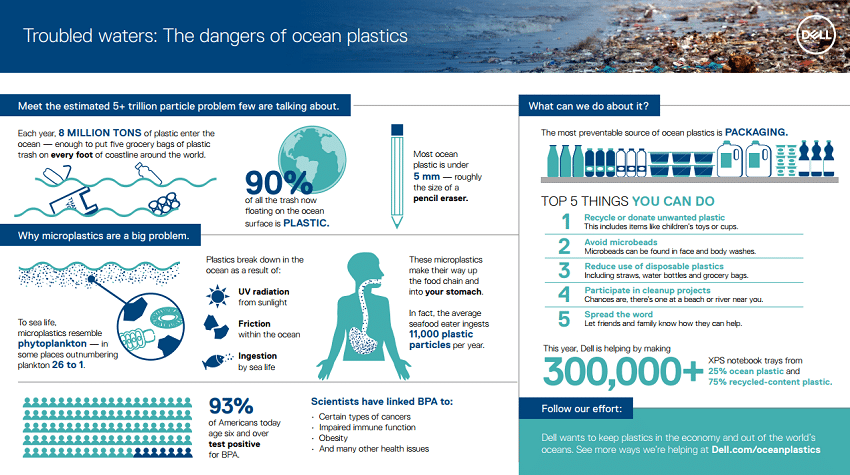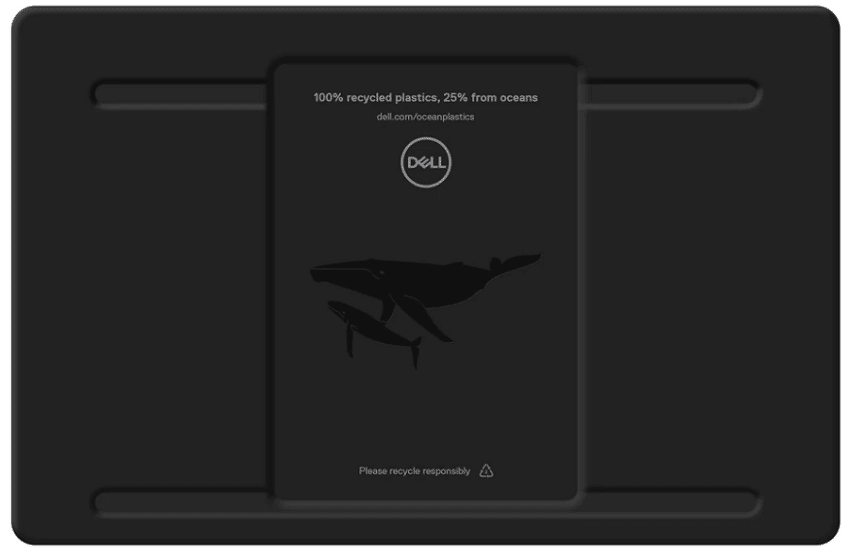Now more than ever, technology companies are trying to do their diligence in curbing the effects of human footprint and consumption on the environment. Oceans are one of these areas that are extremely vulnerable to human waste, particularly with plastics. In fact, some experts believe that more than 86 million metric tons of plastics are in the oceans at this very moment, which translates to more than 5 trillion pieces in total. This is a serious concern, especially since the vast majority of these plastic pieces are said to be under 5mm in size. This certainly makes extraction difficult.

This is why new initiatives like NextWave are extremely important. The organizations involved believe that intercepting ocean-bound plastics from waterways will create noticeable environmental and social benefits. Originally founded and led by Dell, NextWave is a collective of companies around the globe (such as GM, HermanMiller, and Humanscale) who are creating the first cross-industry, commercial-scale global ocean bound plastics supply chain that processes materials collected from river and coastal areas for use in the products and packaging of those involved.
Members of NextWave will collectively share the responsibility for developing a sustainable model designed to significantly reduce the volume of plastic and nylon waste. They will also work together to ensure that the resulting supply chain has the necessary infrastructure and support to meet demand as well as align with globally approved social and environmental standards. Moreover, this initiative will ensure the integrity of the supply chain and resulting product integration via a comprehensive “chain-of-custody compliance” and an external, third-party verification of impact.
Dell and NextWave promises to actively partner with scientists and advocates who work with marine litter and ocean health to understand (and be advised on) a sustainable model that supports the needs of coastal communities and environments.
As we mentioned above, Dell is the biggest player in the NextWave initiative and is really trying to do their part in setting a new standard among tech companies. Earlier this year in February 2017, Dell launched its first ocean-bound plastic packaging pilot and assisted with the creation of the UN Environment Programme’s Clean Seas Initiative. As a result, over 33 countries took action to reduce marine litter. In addition, Dell and the Lonely Whale Foundation addressed the United Nations in June of this year during the UN Ocean Conference, where they pledged its commitment to UN SDG Goal 14 (Conserve and sustainably use the oceans, seas and marine resources).
So, what is exactly Dell`s process in the NextWave initiative? First, plastics are collected with Dell’s “entrepreneurial pickers”, volunteer groups and professional recycling organizations, which are then aggregated and sorted by various waste processors. Once all the captured ocean-bound plastics have been cleaned via processing and refinement, Dell mixes them with other recycled HDPE plastics in a 1:3 ratio. This helps to ensure any impurities of the recycled plastics will have no effect on the quality or chemical composition of the final product. The resin is completed made up of recycled-content plastics, with 25% being ocean plastics. Dell places this mix into trays molds, which are then stamped with #2 recycling symbol.

These new environment-friendly trays are “curbside recyclable” (meaning you can leave them at the end of your driveway for your city recycling program) in most places around the US and are slated to launch with the new XPS 13 2-in-1 notebook. Dell indicates that they will be shipping them globally with an initial goal to keep 16,000lbs of plastics out of the oceans. They plan to increase this number ten-fold (160,000lbs) by 2025 and will continue to look for innovative ways use this material for both packaging and other products in the future.




 Amazon
Amazon